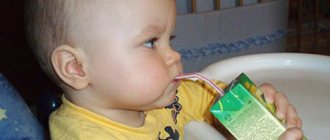Cognitive processes
At the age of 5 years, a child already has a certain set of sensory patterns: sounds, smells, variations of shapes. Analyzing an object, he uses the experience already gained to evaluate individual properties: height, width, color. He notices details and can compare objects with each other.
Mental processes at this age are very active. Children improve their speech, using it not only to convey information, but also to process data coming from other people. A preschooler strives to communicate with adults, turning into a “why”. It is important for him to receive reasoned answers and compare information received from different people. This helps the baby explore the world around him, deepen and enrich his knowledge. It is important for parents to support the activity of their preschooler:
- answer questions patiently;
- listen to his opinion;
- take the child's position;
- encourage curiosity;
- do not make fun of, even if the child’s opinion is wrong.
In preschool age, another important process is actively formed that influences the further development of the child - imagination. He uses it for better assimilation of information in the process of learning activities or quality reflection. With the help of imagination, he fantasizes, receiving positive emotions. Fantasies at this age are not yet completely separated from reality, so for a child imaginary friends become as important as real ones.
Communication
During preschool age, interactions with peers are just as important to children as interactions with older children and family. By the age of 5, they have their first stable friendships. Children learn to perceive each other's desires, distinguish between moods and emotions. Each child, in the eyes of his friends, acquires individual characteristics and is remembered thanks to one striking feature (Vova loves to play with cars, Masha’s favorite food is cake).
Realizing himself as part of a children's team, the baby forms his self-esteem. It is influenced by both the number of friends and the quality of communication itself. Depending on the type of character, the child strives to be a leader in the group or takes the position of a follower. But every child needs to be noticed and accepted. Based on his position in the team, the future level of aspirations, active or passive position is laid down.
To help your child develop proper self-esteem, parents and other significant adults need to praise him more often, noting even minor successes. The higher the preschooler’s confidence, the easier it will be for him to cope with ever-increasing demands and subsequently master the school curriculum.
Game-based learning
A 5-year-old child is a bundle of energy, a holiday, positive in its purest form. In order for him to remain this way for a long time, it is necessary not to overshadow his childhood with adult problems. Help him understand important theory through play.
These rules include:
- fire safety;
- Traffic Laws;
- inadmissibility of communication with strangers.
Play activity
Play for a preschooler aged 5–6 years takes on special significance. It becomes more complex, more thoughtful, and acquires a plot. Children learn to play not separately, but together, fitting several roles into one scenario. The role-playing game plays the role of social training, teaches you to manage your emotions, seek a compromise, and take into account the wishes of your fellow players.
The plots of the games reflect the reality surrounding the child. Children attending kindergarten have a sufficient range of toys to model basic social situations. Boys and girls can choose any role according to their preferences: teacher, fireman, car driver, cook, salesman and many others. Children also often reproduce the plots of fairy tales and cartoons, which they become familiar with in kindergarten and at home.
When playing, children no longer just mechanically perform a set of actions. They change their behavior to suit the chosen role. The plot of the game helps them express their emotions and develop their imagination. During play, children often not only use objects for their intended purpose, but can also replace missing ones with them. For example, a pencil can become a magic wand, cubes can replace a product missing from a recipe. This is how a preschooler learns, with the help of an imaginary situation, to work out real options for relationships.
The main functions of the game in preschool age:
- Development of verbal communication. By interacting with peers while playing, preschoolers develop the necessary vocabulary.
- Development of creative abilities. Games stimulate imagination.
- Overcoming egocentrism. The child gets rid of the stubborn desire to insist on his vision if he understands that other children do not agree with him and are ready to exclude him from the common game.
- Development of voluntariness. The need to coordinate actions with the actions of other children develops volitional processes.
To get the maximum benefit from play activities, adults should only slightly guide children, offering possible options, but without interfering with the play process itself.
Features of other activities
Characteristic features of the psychology of a child aged 5-6 years are stimulating activities that accompany play:
- Visual activity. Drawing is one of the favorite activities of children of both sexes. In early preschool age, drawing is primitive and depicts simple graphic patterns. Gradually, the plot of the drawing becomes more complex, individuality appears. By drawing, the child reflects his perception of the world, so analysis of the drawing is one of the main methods of psychodiagnostics of preschool children.
- Educational activities. The child is educated throughout the preschool period, but immediately before entering school, studying acquires the status of an obligation. Classes in kindergarten prepare the child for a strict daily routine, help develop responsibility, and the desire to receive praise for correctly completed tasks.
As in the case of leading activities, a preschooler needs stimulation and approval of the results of his visual and educational work. It is important for him to receive praise for his activities in order to feel accepted.
Formation of independence
At preschool age, the child does not yet have the necessary life experience that allows him to make truly independent decisions. But he already needs partial freedom and independence. It is important that both parents have the same opinion and do not force the baby to constantly rush between two positions, when mom allows and dad forbids. This only confuses him and deprives him of any desire to take initiative.
Gaining independence begins with learning self-care skills. A preschooler must be able to dress himself, wash and dry his hands, and use cutlery without assistance. It is important to teach him to navigate in space, to know his address and parents’ phone numbers, but not to be gullible. A preschooler must learn that adults are not always guided by good intentions, and they need to be able to behave correctly in a dangerous situation.
Psychology of the subtleties of education
The following statement is true: “No matter how you pretend, you won’t be able to deceive a dog or a child.” Children subtly sense the mood of those around them and their attitude towards themselves. In addition, they are able to analyze and draw conclusions.
It is not always clear to a child how to behave in a certain situation. And when a loved one gets sick or sad, he tries to distract him from bad thoughts. Any methods are used. The child cries, laughs, or plays around. If only his mother, who communicates with him every day, teaches and explains something, continues to be his favorite girlfriend in all matters and games.
Sometimes such “care” causes a lot of trouble. It is impossible to accuse the child of insensitivity and ingratitude at such moments. Under the mask of noisy fun and sudden needs, fear and excitement are hidden. The child is confused by the strange change of a loved one. Therefore, sometimes he may ask questions: “Can you hear me?”, “Can you talk?” So he tries to attract attention and clarify whether he was the reason for the sudden change.
At these moments, the child needs support. It is enough to hug him and pat him on the head. You can say a few phrases in a calm voice, without notes of irritation or dissatisfaction. Explain the current situation, even if he did not ask about it directly. The advice of another adult whom the child trusts will also help.
Thematic material:
- Breathing exercises Buteyko
- Board games for children 5 years old
Self-esteem of a preschooler
In preschool age, a child gradually ceases to be guided by his parents’ opinions about him and pays more attention to his peers. Recognition in the children's team and a sense of belonging are important to him.
To create favorable conditions for the development of normal self-esteem, you need to praise and encourage the child, stimulate him to new achievements. Receiving the support of parents, the baby gains self-confidence and ceases to be afraid of mistakes. He actively tries new activities, easily meets new people and strives to be the center of attention.
An insecure child becomes touchy and displays causeless aggression. He constantly compares himself with other children and even when he is objectively not inferior to them, he still considers himself worse. Correcting low self-esteem requires attention and support from all family members. It is important for a child to feel needed and loved. The more parental attention a child receives in preschool age, the easier it will be for him to adapt to a new children's group.
How to deal with a child’s 5th year crisis: advice from psychologists
Manifestations of crisis in five-year-old children in the form of hysterics, whims and isolation can be minimized by using the following general tips:
- Try to find out the reason for the child’s bad mood or his secrecy.
- After finding out the reason, offer your child a solution to the problem and implement your plan together.
- Create the most comfortable and tranquil environment in your home.
- Don't give free rein to your emotions - your irritation can lead to catastrophic consequences.
- Always remain calm, even during your child's tantrums. You can only control the situation with your balance.
- Try to encourage all your baby's initiatives and endeavors. Ask him what he is thinking and what he wants. You will be amazed at your child's creative thinking and creative responses.
- Challenge yourself: study with your child, read more books, sign up for accounting or calligraphy courses. The more you develop, the more your baby will benefit from it. And in joint development, the childhood crisis will pass unnoticed for both you and your offspring.
- Become a fan of your little one's talents. Celebrate what he already knows and help him strive for new knowledge and skills. Focus not on possible crisis whims and hysterics, but on the child’s successes and endeavors.
The crisis of five years in a child is a test of the strength of parental nerves. Don't break your relationship with your baby by losing his trust. Strive for mutual understanding under any circumstances and even in the most reckless behavior of your child.
What should parents do?
Practical recommendations for what parents should do if their children are in crisis:
- Try to spend as much time as possible with your baby: be interested in his affairs, talk about yours, talk about important and trivial topics.
- All your actions concerning the child must be explained to him. It is important for a five-year-old to feel important, and explanations will convince him that you treat him like an adult.
- Talk with your child more often about “what is good and what is bad.” This is especially important in cases where the baby shows aggression or fights.
- Ask your child for help, even if these matters are insignificant - this is necessary so that your offspring feels “needed”.
- Ask your child for advice, show him that you treat him as an equal.
- Play more with your child, allow yourself to plunge into childhood.
- Entrust your offspring with some duties. Over time, increase the number of duties and responsibilities.
- Give your child the opportunity to be a little more free, do not patronize him too much.
- Offer your help and support to the baby, but do not impose.
- Avoid harsh words and actions towards your child. Always have an alternative proposal prepared.
- Praise your offspring more often, even over trifles.
- Don't focus on your child's antics; it will go away over time.
- Give your child the opportunity to find himself and get more impressions: take him to exhibitions, museums, art galleries, circuses, theaters. Explain what you saw, discuss his impressions with him and share yours.
- Remember that any energy needs an outlet. Excessive activity can find its application in sports sections: swimming, football, dancing, tennis, badminton, karate, fencing, rhythmic gymnastics. Experiences associated with age-related characteristics will fade into the background, as the child will meet new people and strive for success in the business in which he is busy.
- Try to teach your child to formulate his own opinion, convince others, logically build a chain of arguments, and justify his desires. The ability to competently express your thoughts and desires will help your baby communicate in a civilized manner with you and others. Screams, hysterical demands, mooing, angry silence, ignoring the requests of adults - all this will disappear into oblivion as soon as the child learns to speak correctly and give reasons in his favor.
- It is important to keep your child busy all the time and not get bored. Help him find himself, make his life richer. If he doesn’t have a lot of time, unnecessary thoughts and reasons for irritation and withdrawal will not come to his mind. The sooner a child finds a suitable activity for himself, the better he will survive the current crisis and subsequent ones.
During a crisis, a good parental example is very important for five-year-old children. Become a friend and role model for your child, and the difficult period will seem less long and difficult.
What should parents not do?
During the crisis period of a five-year-old child, experts categorically prohibit the following:
- Screams, scandals, humiliation and physical abuse of the child.
- Rudeness, anger and careless attitude towards a child. If you cannot control yourself, then parents are advised to visit a psychologist.
- Use phrases like “You’re bothering me”, “Go away/go away”, “You don’t know how to do anything”, etc.
- Intrude, lecture, lecture, emphasize the child’s age and lack of any skills.
- Connivance with obvious aggression and inappropriate behavior of your offspring.
- The situation needs to be corrected gently, without hysterics and assault.
- Slow down if you see that the baby needs help. Put everything aside and take care of your offspring's problems immediately.
- Ignore your child and put your needs before his.
Adult authority
At preschool age, an adult remains an unquestioned authority for the child. The kid believes everything that adults tell him. Conversations with parents and educators are his main source of information about the world around him. When his vocabulary becomes sufficient to understand the speech of adults, he strives to participate in the general conversation and is offended if he is excluded.
At the same age, the child begins to consciously lie to his parents. The main reason for deception is fear of punishment. Since children do not yet have the leverage that adults have, their only weapon is manipulation. When a preschooler lies to mom or dad, he understands that he is doing a bad thing, but continues to be afraid of adults as authority figures in his life. You should not scold your child for lying, but it is important to make it clear that it is unpleasant for parents when they are deceived. This way, children will be sure that their needs are valued and understood, and are perceived as equal individuals.
Signs of crisis in a 5 year old child
Parents should know the features of a difficult period in order to provide the necessary support to their offspring in a timely manner. Symptoms of a crisis in five-year-old children manifest themselves as follows:
- The child withdraws into himself, begins to talk less, shares his emotions, successes and achievements with you, although he has always done this.
- Your offspring refuses to obey adults and shows disobedience.
- The baby has become very timid, insecure and fearful; he seeks to hide from everything new and unknown to him.
- The child is irritated and angry almost all the time, and is rude to adults and peers for no reason.
- The baby is hysterical for no reason, cries over trifles and is capricious all day long.
- The child makes faces, behaves and angrily copies adults.
- The kid fantasizes a lot, tells everyone made-up stories, passing them off as true.
- The child moves a lot and gets tired quickly, is easily excitable and very emotional, although he has not been noticed in this before.
- Your offspring declares that he wants more freedom and independence, refuses to go out together, explaining this by his “maturity.”
- The kid strives to do everything the other way around and to spite the adults, even if it is to his detriment.
- Your offspring has become very stubborn and stands his ground to the end - it is important for him to be taken into account.
- Constant dissatisfaction with everything and everyone.
- Seeks to dictate to everyone what to do and how to be. In his opinion, this is what adults do, and he really wants to be “big.”
Crisis 6 years
Some parents believe that the earlier the child goes to school, the easier it will be for him to adapt to its requirements. This is wrong. A preschooler has not yet developed the skills that will allow him to successfully master the school curriculum. Ideally, the child should be sent to school after he turns 6 years old, so that the start of education coincides with the next age crisis.
Age-related child psychology for 6-7 year olds identifies a “first-grader crisis” - a turning point associated with a change in the child’s understanding of the world order and his place in it. Main signs of a crisis:
- The emergence of your own point of view. The baby already has enough knowledge to have his own preferences and defend them. This is the second important period of asserting one’s independence, which must be reasonably encouraged.
- Imitation of adults. Having realized himself as an individual, the child chooses a role model - as a rule, it becomes a parent. The baby imitates the manner of speech, copies gestures and strives to repeat actions.
- Loss of spontaneity. At preschool age, children learn the rules of behavior in society. They understand that some of their actions cause approval, while others cause a sharply negative reaction from adults.
- The desire for independence. It is important for preschoolers to realize their autonomy. Having entered school, they will have to spend a significant part of the day away from their parents and fulfill the demands of the teacher - a stranger, but a very important person. It is necessary for the child to develop primary independence, which will allow him to endure stress and not need constant help from his parents.
- Awareness of vulnerability. At the age of 5, children develop a primary understanding of death and illness. The kid realizes that one day his parents and he himself will cease to exist, but he still cannot comprehend this process. Misunderstanding increases the fear of the unknown, so children become capricious and deliberately provoke their parents to make sure that they will not go anywhere.
The 6-year crisis is difficult and can drag on for 1–1.5 years. Parents need to show special sensitivity and patience so as not to aggravate the baby’s situation. Sometimes allowing him to be mischievous, but setting clear boundaries is acceptable.











